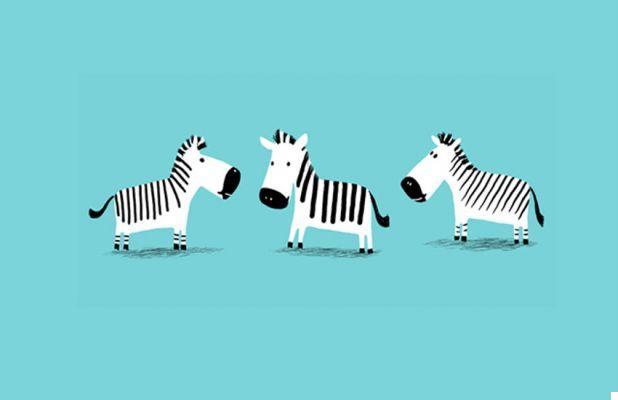
“We all want to be famous, but the moment we want to be something we are no longer free,” said Krishnamurti.
Society encourages us to be “someone”, to pursue success and to make others recognize that we are important and precious. As a result, many people spend their entire lives looking for that recognition, which becomes their leitmotif. They do not realize that trying to be "someone" means handing over the keys to one's freedom, chasing the illusion of success by chaining one's self-esteem to the opinions of others.
Seeking recognition is becoming a slave to the opinions of others
This deep need for recognition means that we are trying to consolidate our identity through the perception of others, who give us an image, as in a mirror, to confirm our worth. In practice, we cannot be "someone" if others do not recognize it, which means that we must adapt and stick to the social canons that imply "being someone". At that precise moment, we become prisoners of our own free will.
The desire to be someone implies that we feed on the admiration of others, that we need their praise to confirm and strengthen our identity, all this satisfies our desire to be special. Thus we escape from the emptiness that implies being "nobody". But then we refuse to be ourselves in order to start living through the eyes of others.
This reality becomes a trap that implies a constant dependence on others, who must continue to recognize that we are someone. Therefore, the journey to become someone often results in an unsatisfactory and unstable reality. And the more we try to strengthen our "successful identity", the more we will be exposed to the fact that it can all end. As a result, we fall victim to the instability from which we wanted to escape.
In search of the solidity offered by being someone, we become more fragile people. Regardless of possessions, achievements or admiration achieved, any identity that depends on the recognition of others always implies a state of extreme fragility, because it can vanish when that social recognition disappears. At any moment we can stop being the best at something or lose the labels we are proud of.
Genuine growth comes from inner humility
Krishnamurti proposes a different way of living and relating to oneself: “The human mind is like a sieve that holds some things and lets others pass. What he holds back is the measure of his own desires; and desires, however deep, vast or noble, are small and petty, because desire is a thing of the mind. Complete attention implies withholding nothing, but the possession of the freedom of life, which flows without restrictions or preferences. We are always holding onto or choosing the things that mean something to us, perpetually holding on to them. We call this 'experience', and the multiplication of experiences we call it the richness of life. The richness of life must be free from the accumulation of experiences. The experience that remains, which one retains, prevents the state in which the known does not exist. The known is not the treasure, but the mind clings to it, in so doing it destroys or profanes the unknown. "
Instead of staying in our comfort zone which reaffirms our identity, we can discover new ways and forms of doing things. But to make some really important discoveries that lead to sea change, we must first empty ourselves of many of our stereotypes, prejudices and beliefs. A mind that is too full has no room for change.
The curious fact is that we can only grow in humility, in the perception of our limits, letting go of the desire to be "someone". Only when we recognize what we don't know can we learn new things. Certainties, on many occasions, open the way to new knowledge and experiences.
Schopenhauer, for example, thought that these sublime experiences derive from the understanding of smallness, from the nothingness of the individual in front of the immensity of the universe. Then the miracle happens: the less you are, the more you grow, the more you learn, the more you discover.
How can we free ourselves from the obsession with being someone?
Emptiness generates panic. However, those who are terrified of emptiness are because they think they are solid, they do not realize that fighting to continue to be "someone" and keep the castle of their identity is completely ineffective. Therefore, to get rid of the obsession of being someone it is important to embrace change, to realize that everything is constantly changing, especially our identity.
It is also essential to support our conception of ourselves from within. Be aware that you don't need to be someone to be happy, feel satisfied, and live fully. A person's fullness comes from doing what makes him happy, not from respecting the rigid social roles that define the guidelines for "being someone".


























